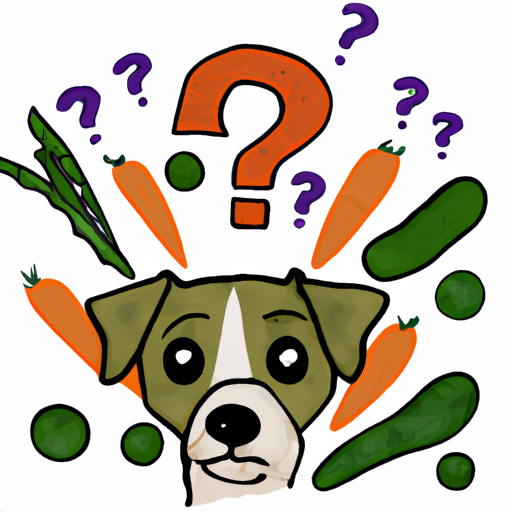Introduction
Let’s face it, your fur baby is more than just a pet, they’re a member of your family. And just like any other member of your family, you want to ensure they’re eating a balanced, nutritious diet. But with the vast array of human foods out there, it can be hard to decipher what’s safe for your canine companion to consume. In this article, we will delve into the world of vegetables for dogs, highlighting which are beneficial to your pooch’s health.
The Benefits of Vegetables for Dogs
Just like us, dogs need a balanced diet to stay healthy. Vegetables are a fantastic source of essential vitamins, minerals, and fiber that can complement your dog’s diet. Here’s why:
- Vitamins and Minerals: Veggies are rich in essential nutrients like Vitamin A, B, C, and K, as well as minerals such as potassium and iron. These help support your dog’s immune system, bone health, and overall wellbeing.
- Fiber: A good dose of dietary fiber can help regulate your dog’s digestive system, reducing issues like constipation and diarrhea.
Top 5 Vegetables Your Dog Can Eat
Here’s a list of healthy, dog-friendly vegetables you can start incorporating into your dog’s meals:
- Carrots: High in vitamin A and fiber, carrots are great for your dog’s eye health and digestion. They also make a crunchy treat that’s good for your dog’s teeth.
- Sweet Potatoes: Rich in fiber and vitamins A, B6, and C, sweet potatoes are both delicious and nutritious for your dog. Make sure to cook them first to ease digestion.
- Peas: Packed with vitamins K, A, and B, as well as protein and fiber, peas are a wholesome treat for your pooch.
- Pumpkin: It’s not just for Halloween! Pumpkin is a fantastic source of fiber and vitamin A, helping to regulate your dog’s digestive system.
- Green Beans: Low in calories and high in vitamins C, K, and manganese, green beans are a healthy addition to your dog’s diet.
| Vegetable | Vitamins | Benefits |
|---|---|---|
| Carrots | Vitamin A, fiber | Supports eye health, digestion |
| Sweet Potatoes | Vitamins A, B6, C, fiber | Aids digestion, boosts immune system |
| Peas | Vitamins K, A, B, protein, fiber | Overall wholesome treat |
| Pumpkin | Vitamin A, fiber | Aids digestion |
| Green Beans | Vitamins C, K, manganese | Low-calorie, healthy addition |
Vegetables to Avoid
While many vegetables are safe for dogs, there are a few you should definitely avoid:
- Onions and Garlic: These can damage your dog’s red blood cells, causing anemia.
- Avocado: The persin in avocado can cause vomiting and diarrhea in dogs.
- Raw Potatoes: These contain solanine, a compound that can be harmful to dogs if consumed in large quantities.
Frequently Asked Questions
Q: Can my dog eat raw vegetables?
A: While some vegetables are safe to feed your dog raw, others should always be cooked to ease digestion and unlock key nutrients.
Q: My dog ate a vegetable that’s not safe for them. What should I do?
A: Contact your vet immediately if you suspect your dog has eaten something harmful. They will be able to guide you on the best course of action.
Q: How much vegetables should I give my dog?
A: As a rule of thumb, vegetables should not make up more than 10% of your dog’s daily caloric intake. Always consult with your vet to determine the appropriate portion sizes for your specific dog.
Q: Can all dogs eat the same vegetables?
A: While most dogs can eat the same vegetables, some may have specific dietary restrictions or allergies. Always consult with your vet before introducing new foods into your dog’s diet.



